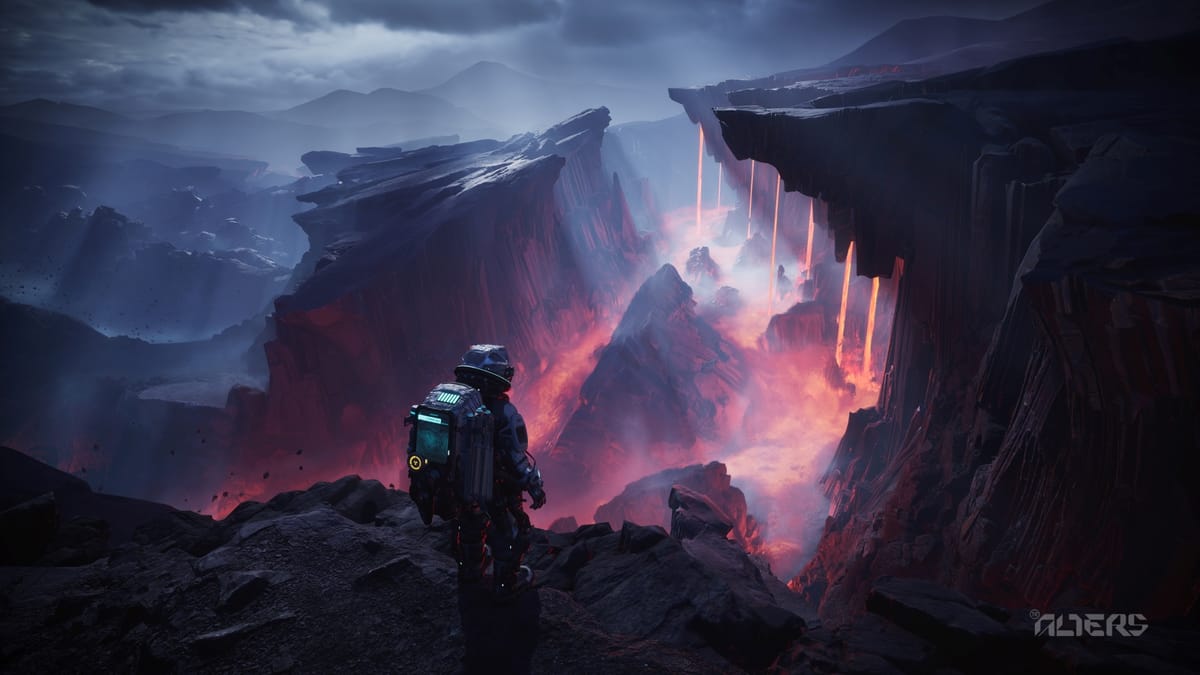
Pics provided by 11 Bit Studios.
Space pioneers have gotten chonky in science fiction over the last decade or so. It was trendy in the past to throw in a “Thank God we invented the whatever device” or “Class M” planets—any excuse to peel astronauts out of those bulky suits. Now it looks like we’re embracing the non-ergonomic truths of galactic travel: the rockets, the oxygen tanks, the cramped quarters, and space’s vast, vast emptiness. It’s an admission that maybe space travel will never have the comforts of our pale blue dot. Some dub this aesthetic “astropunk.”
Starfield and No Man’s Sky made much ado about the “vast” part, their planets rolling around like so many marbles against a blanket of stars. Having reached peak absurdity, we can now shut down debates about who has the biggest open world. Well done, everyone.
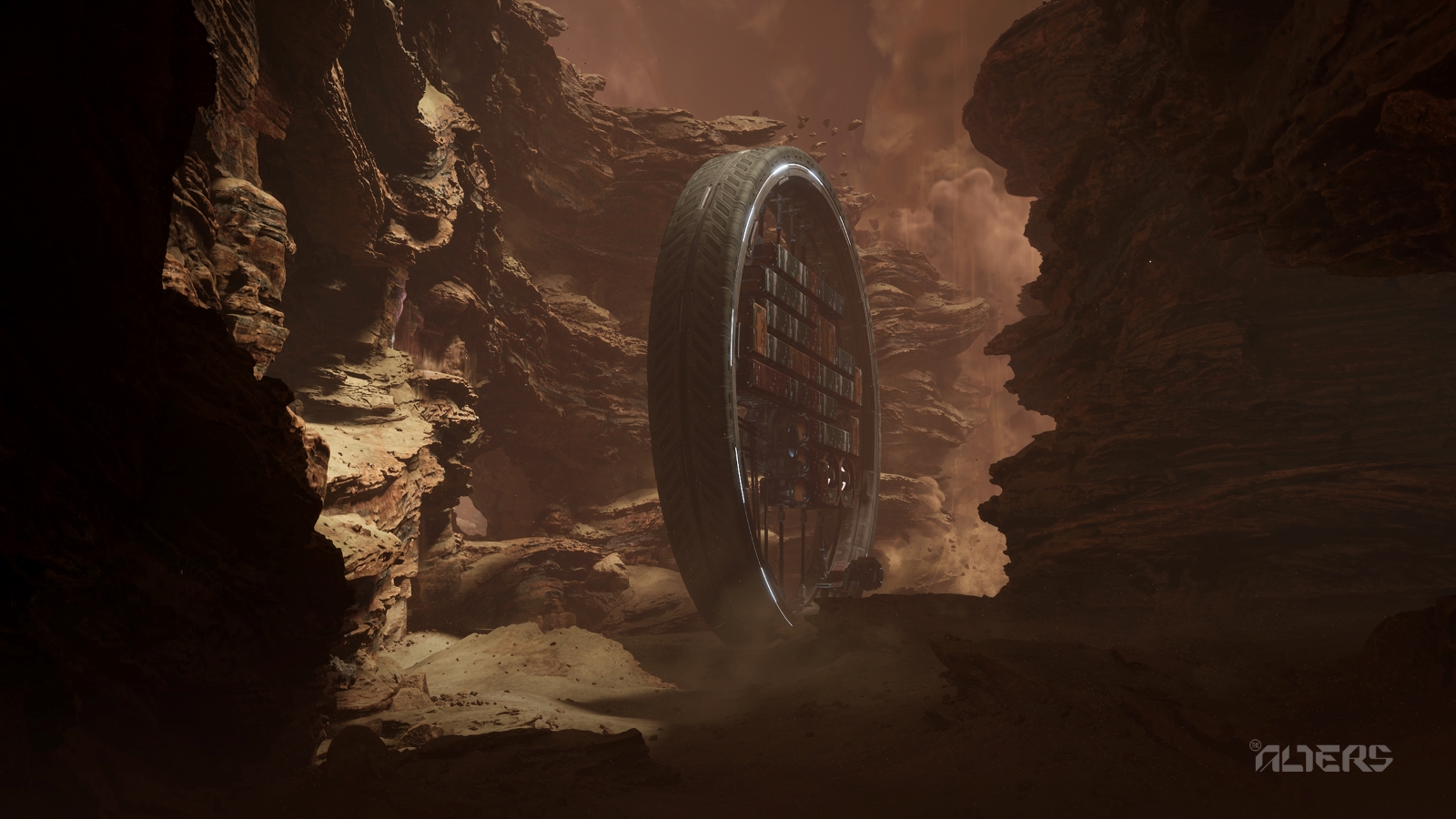
It’s something of a relief, then, to see an astropunk game about one planet, its every inhospitable crag and spurt of lava made by hand. 11 Bit Studios assured us that nothing in The Alters will feature procedural generation.
Despite that, and keeping in mind how little this non-interactive demo put a spotlight on The Alters’ story beats, some aspects feel ready-made. While working for a capital “C” Corporation, a fellow named Jan crash-lands on a desolate world. He discovers a magical unobtanium: “Rapidium,” which, as the name suggests, speeds up reactions. Rapidium is instrumental to his escape and, of course, an item of interest to the Corporation. As he builds his base and collects Rapidium, the planet’s rotation is pushing him toward daylight and the lethal radiation of its sun. If he doesn’t move his base in time, he’s literally toast.
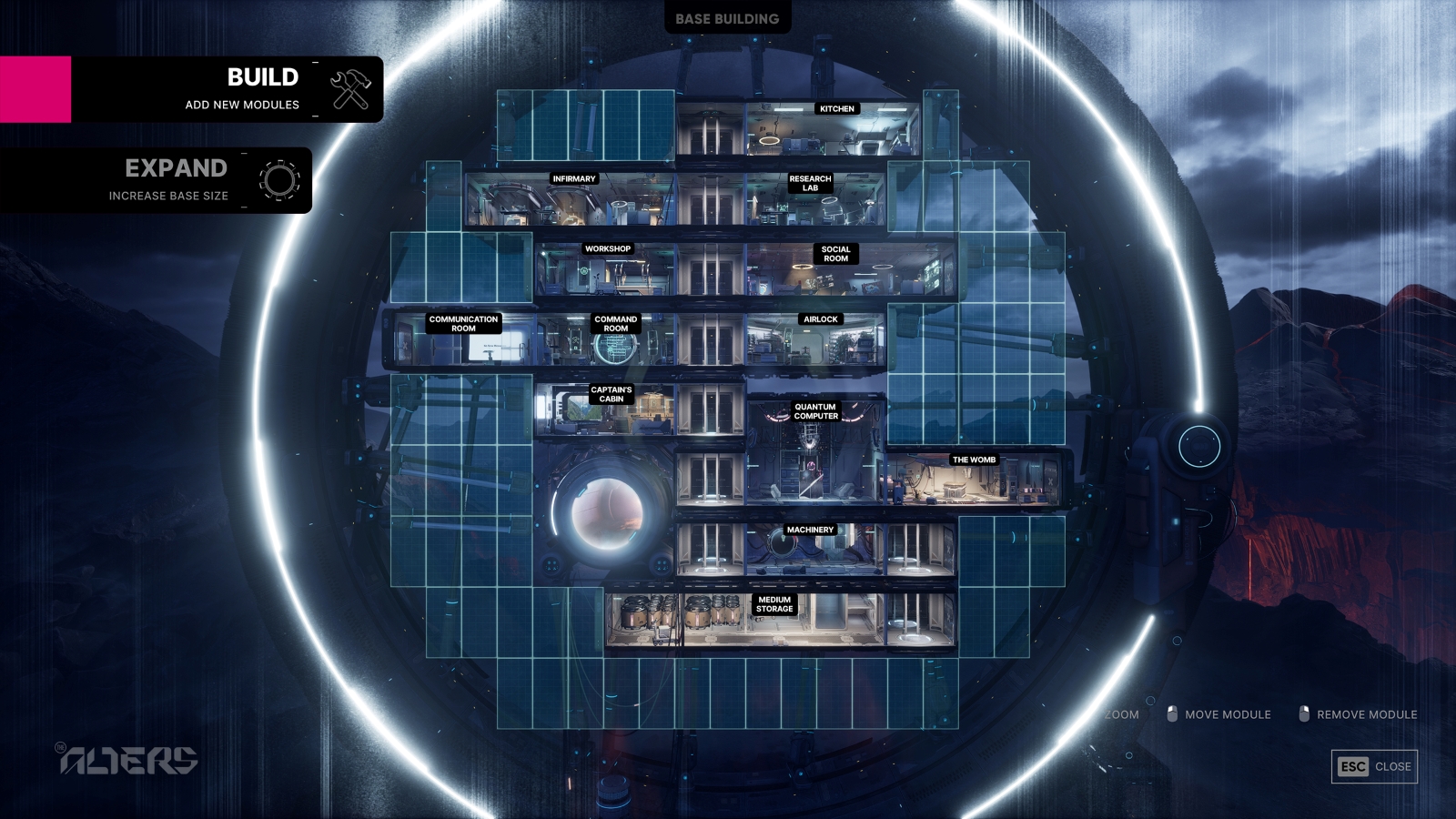
Nothing special so far. The base-building resembles that of XCom or This War of Mine. The exploration of the outside looks a lot like No Man’s Sky and many crafting/survival entries, albeit with a heightened sense of urgency and difficulty. Also, the concept: we’ve all watched Moon, right?
Yet it is, in the grand tradition of New Wave science fiction, using these conventions as a stage for questions about identity. Namely, can you actually take someone’s measure? Can you anticipate what will make you…you?
To handle your gyroscope-sized base, you’ll need help. With the aid of Rapidium and a device called “the Womb,” you’ll get it by yanking versions of Jan from alternate universes. These are the titular “alters,” and you shape them by including or excluding events when constructing their personal timeline.
You don’t, however, know exactly which Jan you’ll get from the process (not from this demo, at least). You’re performing as a moral arbiter and a genetic tailor. Creating alters means reviewing Jan’s decisions, checking them against your needs, and tweaking them for a perfect occupational fit.
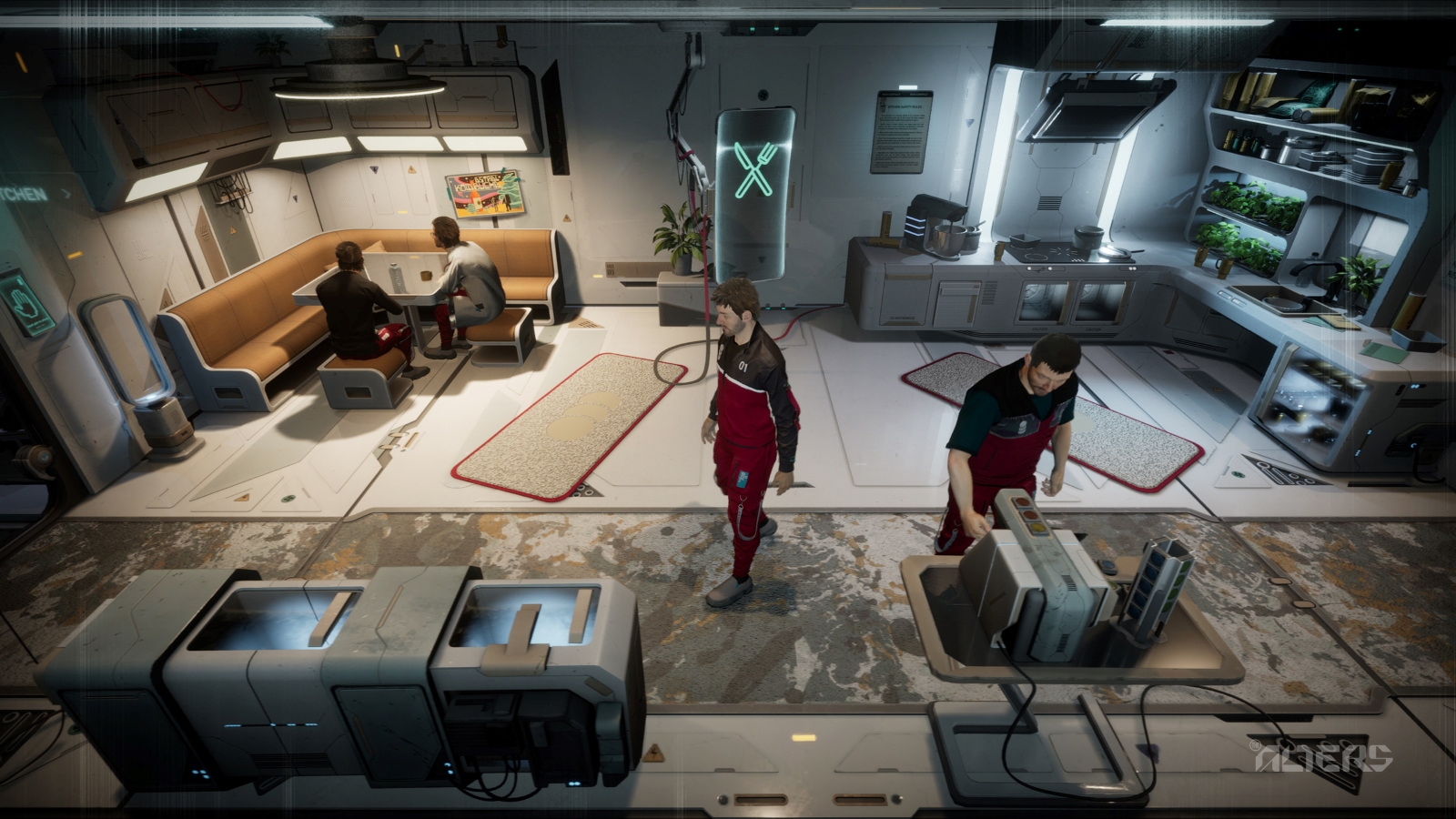
Take “Jan Scientist,” for instance. Like Jan Classic, he pursued higher education. Unlike Jan Classic, Jan Scientist chose not to marry. This resulted in a Jan who became solipsistic and ambitious, so he’s happy to tinker around and invent while you brave the unknown. Ask him about your ex-wife and he responds with something along the lines of “Women? Pshaw! Who needs ’em when there’s so much science to do.” He’s pretty low-maintenance, as you can imagine.
Then take “Jan Miner.” He went into the trades instead of academia and strikes you as a family Jan—er, man. He shoulders the base’s grunt work and has intense opinions about Jan Classic’s ex-wife, who is Jan Miner’s ex-wife for all intents and purposes.
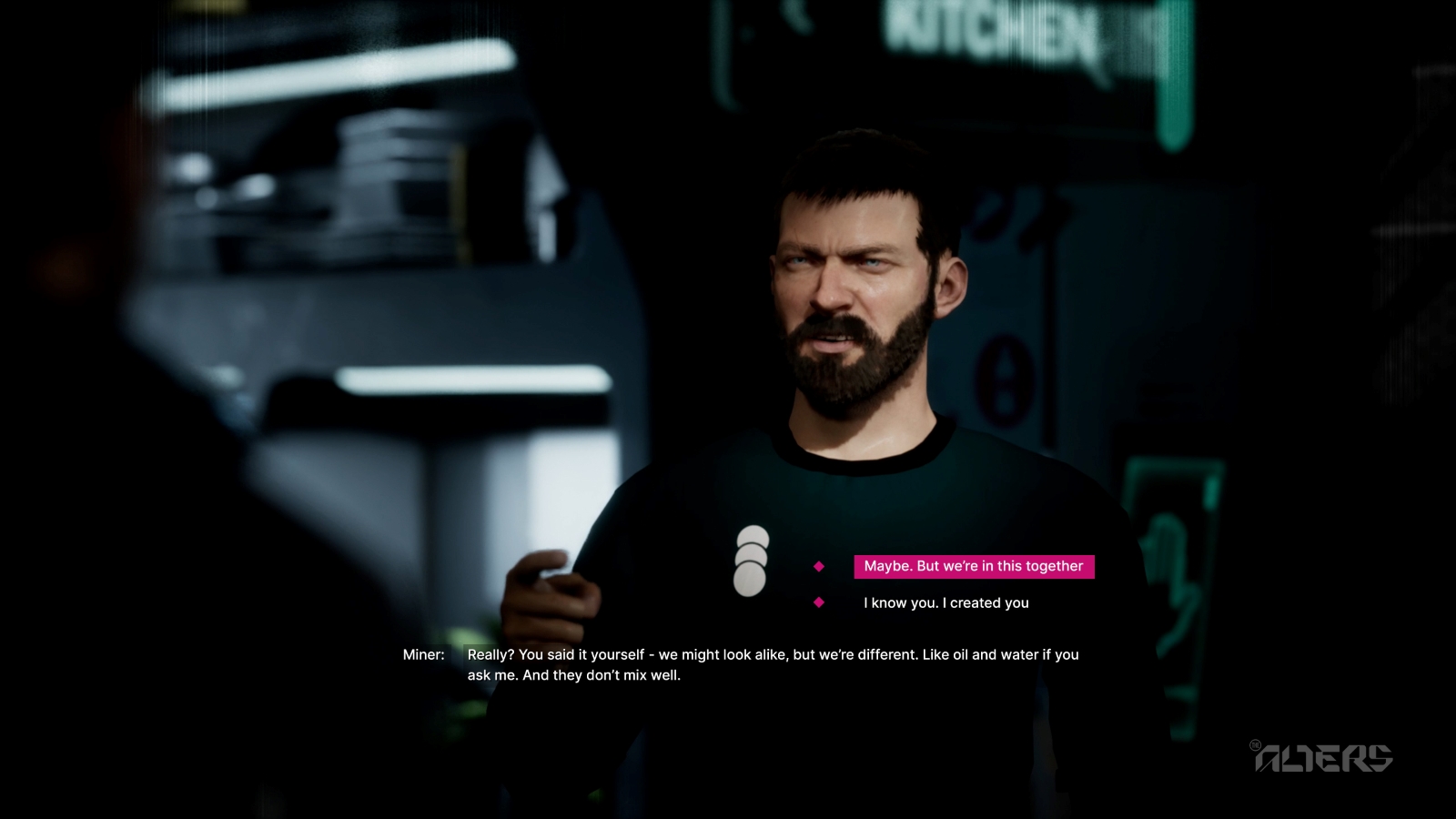
This generates tension on two fronts. Firstly, the nature of his work makes him susceptible to injury and Jan Classic, as the base’s leader, holds the keys to the medical supplies. In the preview, Classic indulged Miner’s opioid addiction one too many times, then abruptly cut him off. In response, Jan Miner decided to remove the offending arm. (On a personal note, this author has, in his short tenure as a medical scribe, witnessed a post-op patient beg for amputation, so this is less fabulated than one might think.) Secondly, he has strong opinions about transparency between you and your ex-wife, even if that transparency extends to Corporate secrets.
Oh yes, Jan’s a castaway, but not cut off from headquarters. The preview showcased a vidchat with a supervisor who, in a why-are-you-making-my-job-hard-right-now tone, reminded him of the terms of his contract and fiduciary responsibilities about proprietary technology and yadda yadda yadda. Threats from the typical HR playbook seem moot when you’re contemplating future as a side of bacon. Still, the welfare of your loved one presumably means a lot to Jan and, by extension, the little Jans toiling to avert your crispy fate. Notifications about shifting attitudes amongst the Jans, their resentment or approval, popped up after crucial decisions.
In such a scenario, vidchats come across as simultaneously cruel and kind. On the one hand, you can speak with loved ones before the end. On the other hand, the idea that even a looming catastrophe can’t silence performance reviews or the grousing of middle management wearies the soul. C’est la vie moderne.
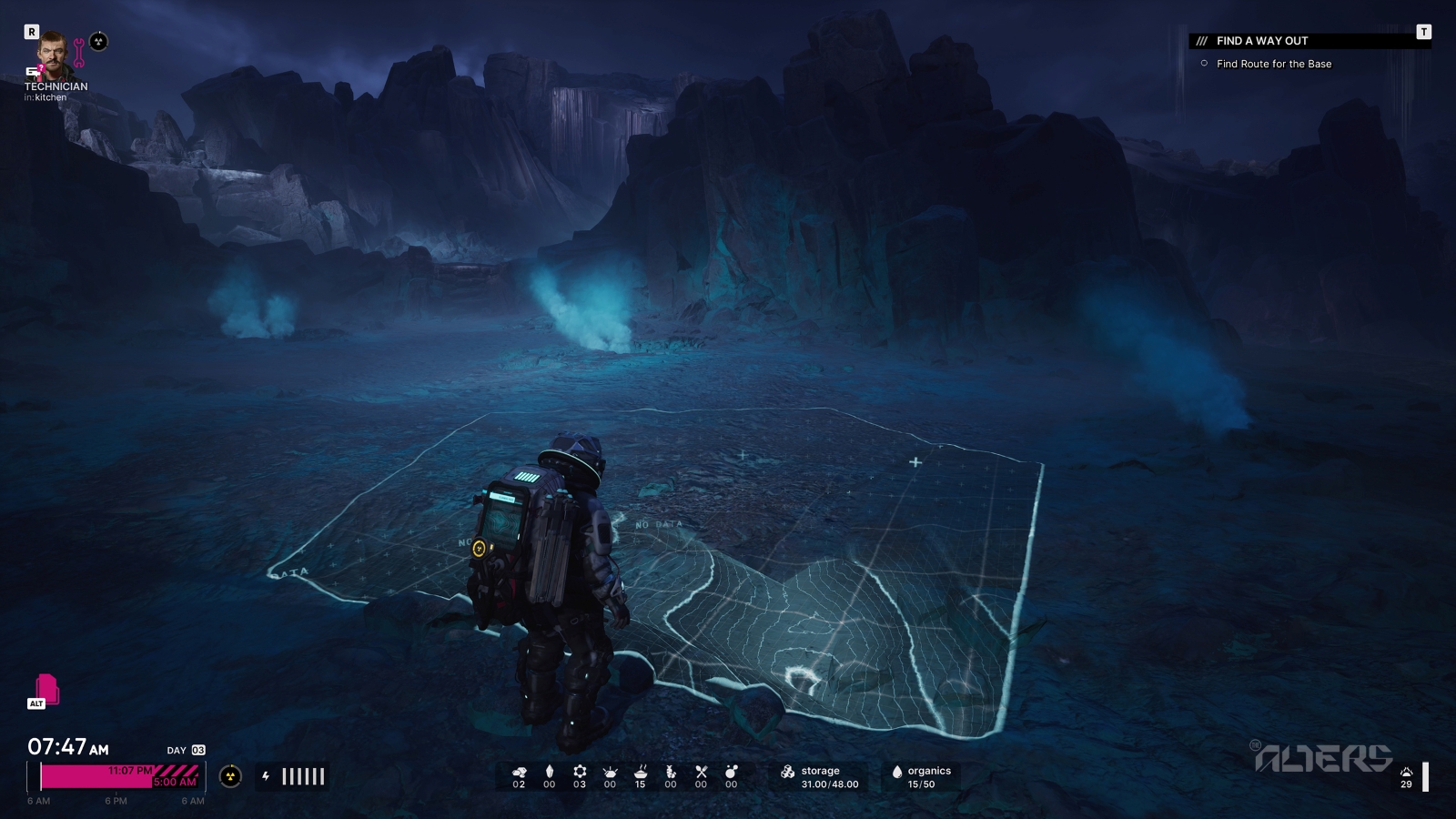
11 Bit Studios continues to take worn genres and inject them with the wonder thoughtfulness, and trepidation of classic science fiction. That’s both a risk and a promise. The Alters could collapse into the mundanity of its constituent parts—base building, crafting, and Telltale Games flowcharts—or become the sort of story we need to understand ourselves.
“Individual science fiction stories may seem trivial as ever to the blinder critics and philosophers of today, but the core o fscience fiction—its essence—has become crucial to our salvation if we are to be saved at all.”
-Isaac Asimov
